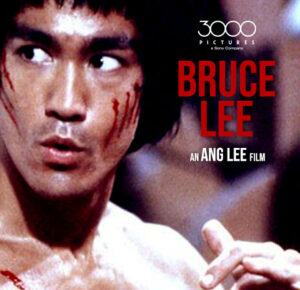
Warrior Princess | aka Queen Ahno | DVD (Lionsgate)
It’s the tail end of the summer and it’s time to cool off and catch up on some must-see movies! So, get ready for the latest roll of new Blu-ray & DVD releases handpicked by cityonfire.com!
For the month of September, we have an amazing list of action, sci fi, gangster, cult, horror, martial arts, kaiju flicks, Asian shoot ’em ups and even one of the most important Anime series of all time!
If you’re interested in purchasing any of the titles, we’re hoping you’ll click on our Amazon.com links to show your support towards cityonfire.com.
14 Blades: September 2, 2014
Anchor Bay presents the Blu-ray and DVD for 2010’s 14 Blades, starring Donnie Yen and directed by Daniel Lee (White Vengeance). 14 Blades is a kung fu thriller set during the Ming Dynasty and centered on a secret service agent (Yen) in the emperor’s court who is betrayed and then hunted by his colleagues.
Baby Blues: September 2, 2014
Well Go USA presents the Blu-ray & DVD for Baby Blues, directed by Leong Po Chih (Hong Kong 1941). When a young couple moves into a home, they find a doll that changes their lives forever (and not in a good way). Originally released in 3D during its 2013 theatrical release, Baby Blues is bound to please The Ring and The Conjuring fans.
Space Raiders: September 2, 2014
Scorpion Releasing presents the DVD for 1983’s Space Raiders, directed by Howard R. Cohen (Deathstalker IV: Match of Titans). If you need something to hold you down while waiting for Star Wars: Episode VII, I have two words for you: Space Raiders! This entertaining cult/sci fi flick features recycled footage, special effects from music from 1980’s Battle Beyond the Stars. Hey, at least they were being resourceful, right?
Tomio: September 9, 2014
Tokyo Shock presents the DVD for 2011’s Tomio, a Japanese horror film directed by Junji Ito (writer of Uzumaki). Based on Ito’s manga franchise, Tomie, Yuki Furukawa plays a young man named Tomio who visits a fortune teller with his girlfriend. While there, he meets a sexy and mysterious older woman (Aya Kiguchi) who clouds his mind. Tomio features creature effects and make up supervised by Yoshihiro Nishimura (Tokyo Gore Police).
Brick Mansions: September 9, 2014
Fox presents the Blu-ray & DVD for Brick Mansions, a remake Pierre Morel’s Parkour-based action film District B13 (aka Banlieue 13). It stars the late Paul Walker, RZA and Parkour co-founder David Belle (who is reprising District 13 role), and like the original, the plot is as follows: An undercover cop tries to take down a ruthless crime lord with access to a a neutron bomb by infiltrating his gang.
Horror Mansion: The Blind: September 9, 2014
Tokyo Shock presents the DVD for Ochazukenori’s Horror Mansion: The Blind, a 2011 Japanese horror flick. One night, Sakura (Aizawa Rina) witnesses a murder through the blinds of her apartment. However, she is unable to identify the killer because he’s masked. The more Sakura thinks about it, she begins to suspect her older sister’s boyfriend as the murderer! Horror Mansion: The Blind features creature effects and make up supervised by Yoshihiro Nishimura (Tokyo Gore Police).
Mothra Triple Feature: September 9, 2014
Sony presents the Blu-ray for the Mothra Triple Feature. In 1996’s Rebirth of Mothra, the three-headed Desghidorah begins to destroy Japan, so Mothra leaves her island paradise to help save it. In 1997’s Rebirth of Mothra II, two young kids unleash a giant sea creature. Mothra’s keepers, the tiny twins Moll and Lora, quickly rouse the gentle giant in order to combat this latest threat to peace. In 1998’s Rebirth of Mothra III, King Ghidorah returns to destroy the Earth. Now it’s up to Mothra to stop it!
Godzilla Double Feature: September 9, 2014
Sony presents the Blu-ray for the Godzilla Double Feature, featuring 2002’s Godzilla Against Mechagodzilla and 2001’s Godzilla, Mothra, and King Ghidorah: Giant Monsters All-Out Attack. In Godzilla Against Mechagodzilla: After the appearance of a new Godzilla, the government builds a robotic Godzilla from the bones of the original monster that attacked in 1954. In Godzilla, Mothra, and King Ghidorah: Giant Monsters All-Out Attack, three ancient guardian beasts awaken to protect Japan against Godzilla.
Godzilla 2000 – US & Japanese Cuts: September 9, 2014
Sony presents the Blu-ray for 1999’s Godzilla 2000, which features both the 99 minute U.S. version 99 minutes, and the 107 minute Japanese version! The action heats up when a UFO reveals itself as a massive alien monster with awesome destructive powers. The alien monster heads straight for the behemoth Godzilla who’s just crushed the entire city for the battle of the millennium. But Godzilla’s furious heat beam may not be enough to destroy the death-dealing alien, and the future of humankind is in jeopardy.
Friend 2: The Legacy: September 16, 2014
Inception Media presents the DVD for Friend 2: The Legacy. Directed by Kwak Kyung-taek, Friend 2 (aka Chingu 2) is an upcoming South Korean film about three generations of gangsters, starring Yu Oh-seong (Friend), Joo Jin-mo (A Better Tomorrow) and Kim Woo-bin (Runway Cop). It’s the sequel to the 2001 box-office hit Friend, which was also directed by Kwak Kyung-taek.
Evil Feed: September 16, 2014
Screen Media presents the DVD for Kimani Ray Smith’s Evil Feed. A group of young martial artists infiltrate an underground pit fighting ring where the loser is chopped up and served in a Chinese restaurant called The Long Pig… two men enter, one course leaves! If you tap out, you’re take out!
Texas Chain Saw Massacre – 40th Anniversary Edition: September 16, 2014
MPI Media Group presents the Blu-ray & DVD for Tobe Hooper’s 1974 cult horror film Texas Chain Saw Massacre. In this new 40th Anniversary Edition, the classic film has undergone a new 4K restoration by NOLO Digital Film.
Warrior Princess: September 16, 2014
Lionsgate presents the DVD for Shuudertsetseg Baatarsuren’s Warrior Princess (aka Queen Ahno), Mongolia’s highest-grossing film to date! In a time when honor was everything, discover how one woman’s (Otgonjargal Davaasuren) sacrifice inspired the courage of a nation’s army in their fight for freedom! Based on the true story of Queen Ahno of Mongolia, who gave her life to save her husband and sons in battle.
Godzilla (2014): September 16, 2014
Warner presents the Blu-ray + Blu-ray 3D & DVD for 2014’s Godzilla. In this sci-fi action epic, Godzilla returns to its roots as one of the world’s most recognized monsters. Directed by Gareth Edwards and featuring an all-star international cast, this spectacular adventure pits Godzilla against malevolent creatures that, bolstered by humanity’s scientific arrogance, threaten our very existence.
Firestorm: September 23, 2014
Well Go USA presents the Blu-ray & DVD for Firestorm, starring Andy Lau. This high-octane action/thriller is set in modern day Hong Kong. It follows Lau as a senior police inspector out to bring a vicious gang of thieves to justice.
Found: September 23, 2014
Xlrator presents the DVD for Scott Schirmer’s Found. Marty is the ideal fifth grader. He gets good grades, listens to his teachers, and doesn’t start trouble in class. But a darkness is beginning to fall over his life. Classmates won’t stop picking on him, his parents don’t understand him, and now Marty must grapple with a terrible secret that threatens to destroy life as he knows it — his big brother is a serial killer! Found is known of its gore and disturbing subject matter. Nevertheless, it’s critically acclaimed for being a work of cinematic art!
Game of Assassins: September 23, 2014
Lionsgate presents the DVD for Matt Eskandari’s Game of Assassins (aka The Gauntlet). A group of misfits find themselves trapped in what they believe to be an underground incinerator, and come together in the hope of discovering a way out. But they quickly realize that to get out alive, they’ll each be tested in ways that are specific to their past – ways that will leave their future changed forever. Game of Assassins stars Dustin Nguyen (Once Upon a Time in Vietnam), Bai Ling (The Crow), Jaime Ray Newman and Warren Kole.
Danger Dolls: September 23, 2014
Millennium Entertainment presents the DVD for Danger Dolls, directed by Shusuke Kaneko, creator of the 1990s Gamera series, the manga-inspired Death Note films and Godzilla, Mothra & King Ghidorah: Giant Monsters All-Out Attack, which many consider to be the best entry in the entire Godzilla film series. Danger Dolls follows a quartet of cute idol singers who moonlight as butt-kicking action heroines.
Robotech: The Classic Collection Vol. 1: September 23, 2014
Lionsgate presents the DVD for the Robotech: The Classic Collection Vol. 1, a 4-disc set that includes Episodes 1-18. This action-filled collection that contains the landmark 1985 television broadcast version – along with the original and uncut episodes from the Japanese series The Super Dimension Fortress Macross.
Samurai Cop: September 30, 2014
Cinema Epoch presents the Blu-ray for 1991’s Samurai Cop. Detective Frank Washington (Mark Frazer) and Joe Marshall (Matt Hannon) team up to take on the Yakuza in this 1991 cult classic. Directed by the late Amir Shervan (Killing American Style), Samurai Cop found a whole new audience during its midnight theatrical circuit and film festival re-release.
Krull: September 30, 2014
Mill Creek Entertainment presents the Blu-ray for 1983’s Krull, directed by Peter Yates (Bullitt). This British-American, fantasy-science fiction film follows a prince and a fellowship of companions who set out to rescue his bride from a fortress of alien invaders who have arrived on their home planet. When I was a kid, I used to think this movie was about an oversized ninja star!
Osaka Badass: September 30, 2014
Pathfinder Home Entertainment presents the DVD for Takahiro Ishihara’s Osaka Badass (aka Snake of Violence). This crime-filled epic revolves around three troubled youth and their intense history with the Yakuza. Elitsi calls Osaka Badass “A higher class of cinema.” Osaka Badass stars Tak Sakaguchi (Versus), Takashi Nishina, Kanade Matsuzaki, Takaya Yamaki, Arata Yamanaka and Nanako Kodama.
Osaka Violence: September 30, 2014
Pathfinder Home Entertainment presents the DVD for Takahiro Ishihara’s Osaka Violence. After witnessing a gang murder, 12 year old Masashi asks his father what he’d do if he were killed by a Yakuza. Exact vengeance his father promptly replies. The next day, in an unfortunate turn of fate, Masashi’s father is hospitalized with serious injuries, leaving Masashi on his own. Osaka Violence stars Ryosuke Kimura, Shouji Oomiya, Yuusuke Mizuno, Taro Saba and Hisashi Ueno.
Stunt Squad: September 30, 2014
Raro Video USA presents the Blu-ray & DVD for 1977’s Stunt Squad, directed by Domenico Paolella (Hercules and the Tyrants of Babylon). Also known as Elimination Force or La polizia è sconfitta, this poliziottesco film stars Marcel Bozzuffi, Vittorio Mezzogiorno, Riccardo Salvino and Claudia Giannotti. The character of Mezzogiorno is described as “perhaps the most gruesome and ruthless villain of the Italian crime cinema.”
American Muscle: September 30, 2014
Well Go USA presents the Blu-ray & DVD for Rafvi Dhar’s American Muscle. Falcon (Nick Principe) did 10 years of hard time in prison, now he’s got 24 hours to get revenge on every person who sent him there. It isn’t exactly a post-apocalyptic flick, but judging from the trailer, it has enough road action, sex and brutal violence to keep up us pre-occupied until Mad Max: Fury Road finally gets released.
Once Upon a Time in America: Extended Director’s Cut: September 30, 2014
Warner presents the Blu-ray & DVD combo for 1984’s Once Upon a Time in America: Extended Director’s Cut, directed by Sergio Leone (Dollars Trilogy). The Extended Director’s Cut (251 minutes) contains the Extended Director’s Cut, the 1984 theatrical edition, Digital HD with UltraViolet, plus the 32-page book with rare photos and chronicles of the movie’s production,
Looking for new import releases?
If you’re looking for a new import release, please visit DDDhouse.com. The trusted retailer carries new and upcoming releases that are not yet available in North America, such as Donnie Yen’s Iceman and Louis Koo’s Z Storm.






















Be the 1st to Comment